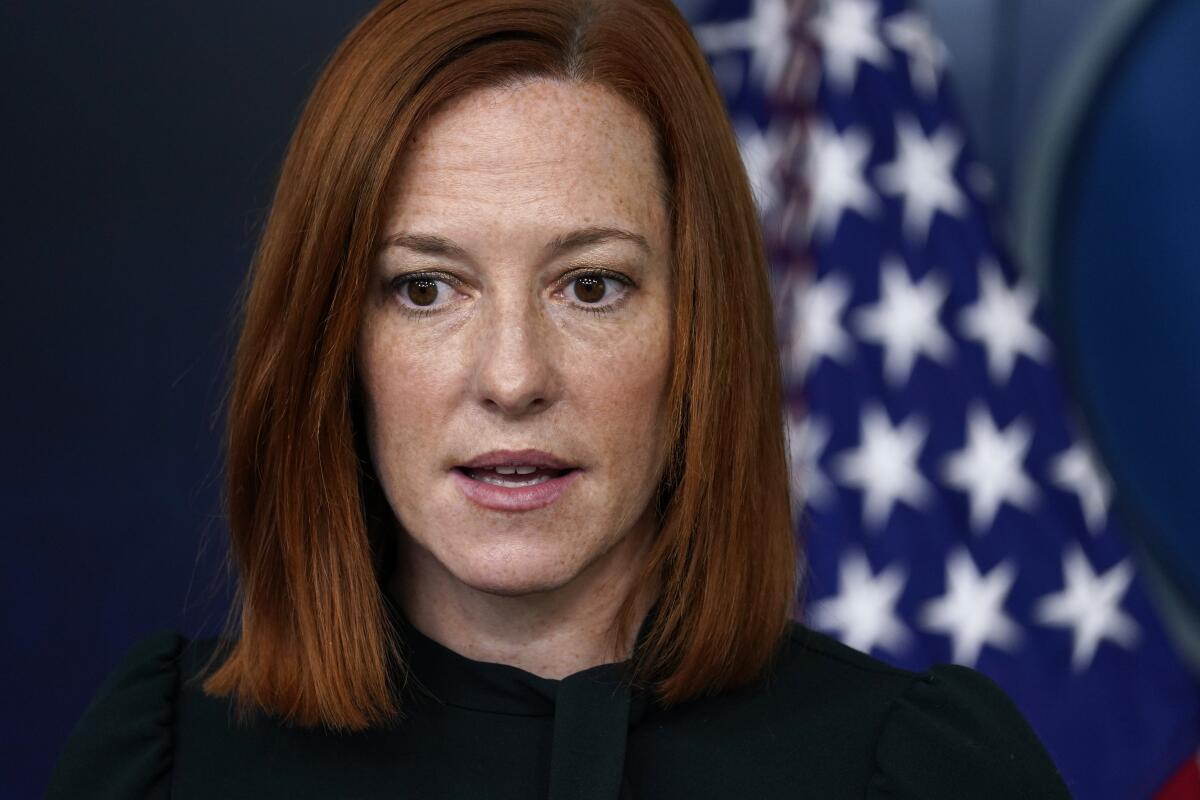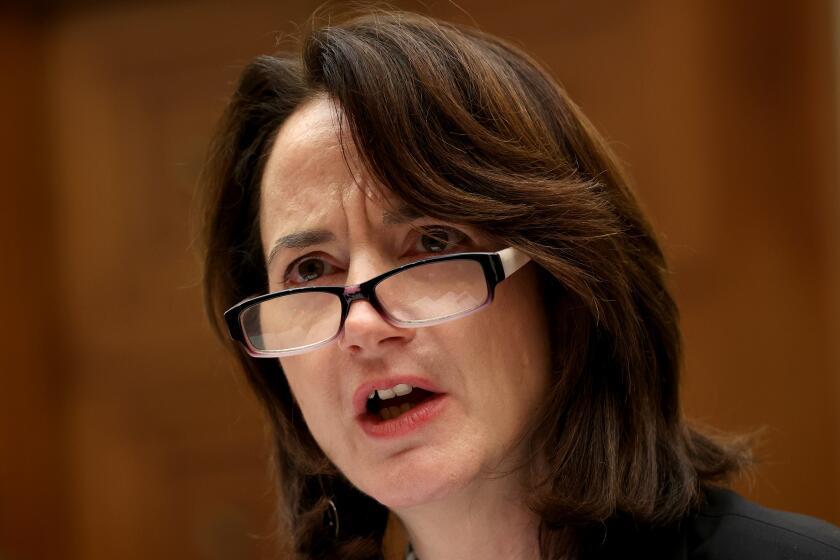Biden officials considering action on student debt relief

- Share via
The Biden administration is reviewing whether it can take steps to provide student debt relief through executive action, even as it continues to call on Congress to pass legislation to help borrowers and their families.
A tweet by White House press secretary Jen Psaki appeared to go further than her comments at a briefing earlier Thursday, when she said President Biden was looking to Congress to act next on student loan relief. Biden has said he supports up to $10,000 in student loan forgiveness per borrower.
“The President continues to support the cancelling of student debt to bring relief to students and families,” Psaki tweeted. “Our team is reviewing whether there are any steps he can take through executive action and he would welcome the opportunity to sign a bill sent to him by Congress.”
That came hours after a group of Democrats urged Biden to use executive action to forgive $50,000 in federal student debt for all borrowers. The group, which included Senate Majority Leader Chuck Schumer of New York and Sen. Elizabeth Warren of Massachusetts, said that would boost the economy and help close the nation’s racial wealth gap.
Biden previously said he supported erasing up to $10,000 in student debt through legislation, but he had not shown interest in pursuing executive action. At a briefing before she issued her statement on Twitter, Psaki seemed to dismiss the idea of using presidential powers to erase debt, saying Biden had already paused student loan payments during the pandemic.
“He would look to Congress to take the next steps,” she said.
Legal scholars have fallen on either side of the issue of whether Biden has the power himself to address loan relief, with some saying the move would be unlikely to survive a legal challenge.
The Trump administration took steps to block broad debt cancellation in early January, issuing an Education Department memo concluding that the secretary lacked the authority to provide such assistance and that it would be up to Congress.
Schumer said he and Warren had researched the question and concluded that “this is one of those things the president can do on his own.” Past presidents have cleared debt, Schumer said, although not at the scale being proposed.
Democrats are pressing the issue as a matter of racial justice and as coronavirus relief. They draw on statistics showing that Black and Latino borrowers are more likely to take on student debt and to take longer repaying their loans.
Rep. Ayanna Pressley (D-Mass.) said the student debt crisis “has always been a racial and economic justice issue.”
“But for too long the narrative has excluded Black and Latinx communities, and the ways in which this debt has exacerbated deeply entrenched racial and economic inequities in our nation,” she said.
Also backing the measure is Rep. Ilhan Omar (D-Minn.), who said it would help millions of Americans who had taken financial hits during the pandemic. “The last thing people should be worried about is their student debt,” she said.
Calls for debt forgiveness have been mounting following years of college tuition increases that have contributed to ballooning national student debt. More than 42 million Americans now hold federal student loans amounting to a combined $1.5 trillion, according to Education Department data.
As the new Senate convenes, Democrats have more power in Washington than they have had in a decade — and a lot of roadblocks undermining it.
In an effort to provide relief soon after the pandemic hit last year, the Trump administration paused federal student loan payments and set interest rates at zero percent. Upon taking office, Biden extended the moratorium through at least Sept. 30.
Some Democrats say that isn’t enough, and Schumer said he recently met with Biden to make the case for wider relief.
Forgiving $50,000 in student debt would cost an estimated $650 billion, Warren said. She argued it would be a “big positive” for the economy by allowing more Americans to buy homes and start businesses.
Republicans have pledged to fight any attempt at blanket debt cancellation, saying it unfairly moves the burden from borrowers to taxpayers.
In a Wednesday hearing with Biden’s nominee for Education secretary, Sen. Richard Burr (R-N.C.) urged the White House to reject calls for mass forgiveness and instead pursue legislation to simplify loan repayment options.
More to Read
Get the L.A. Times Politics newsletter
Deeply reported insights into legislation, politics and policy from Sacramento, Washington and beyond. In your inbox three times per week.
You may occasionally receive promotional content from the Los Angeles Times.











